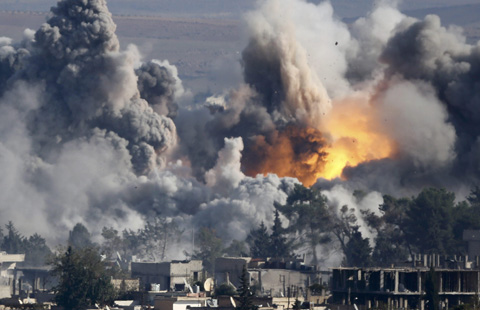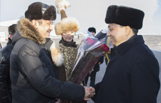Cambodia optimistic over rosy economic prospects
(Xinhua) Updated: 2014-12-25 16:56PHNOM PENH - Cambodia predicts bright economic prospects in the coming year as a one-year post-election crisis has ended, government officials and businessmen said.
Finance Minister Aun Porn Moniroth said 2014 saw a great deal of effort, numerous struggles, and a great deal of patience to overcome difficulties and challenges both inside and outside the country.
"With the government's efforts and commitment, Cambodia can maintain stability, security, and good public order as well as ensure a high-level of economic growth, a low inflation rate, and remain attractive to investors," he said during a recent parliamentary session.
He said the country's gross domestic product (GDP) is forecast to grow by 7 percent to $16.9 billion for 2014 and around 7 percent to $18.3 billion in 2015.
"With this growth, GDP per capita is projected to hit $1,225 in 2015, up 8.4 percent from $1,130 in 2014," he said.
Cambodia's economic growth remains reliant on garment exports, tourism, agriculture, and construction, and, as with 2014, the inflation rate will be around 3.5 percent next year, the finance minister said.
The official figures showed that the Southeast Asian nation exported products worth $4.44 billion in the first nine months of this year, up 12 percent compared to the same period last year, while tourist industries were buoyed by 3.67 million foreign visitors during the period, up 5 percent year-on- year.
On the construction sector, however, the country attracted $2.03 billion in investment projects during the first nine months of this year, down 10 percent year-on-year.
Finance Secretary of State Vongsey Visoth said Monday that foreign direct investment (FDI) was also one of the key sources to support the economy.
"We have attracted positive FDI figures this year, particularly from China, Japan, and South Korea," he said during a public forum.
The nation drew $1.5 billion in FDI during the first nine months of the year, according to the figures from the Council for the Development of Cambodia.
Nguon Meng Tech, Director General of the kingdom's Chamber of Commerce, predicted a bright future for Cambodia's economy in the coming years as political disputes have ended.
"Political stability is the key factor to attract investments," he told Xinhua on Monday.
"Now, Cambodia is full of political stability after the opposition party ended in August its nearly one-year boycott of parliament."
"I'm confident that more foreign investors will come to Cambodia in the coming years," he said, adding that most of the investors are from China, Japan, South Korea, and Malaysia.
The opposition Cambodia National Rescue Party (CNRP), led by Sam Rainsy, ended its 10-month boycott of parliament over 2013's disputed election results in August, after Prime Minister Hun Sen agreed to its proposals for the reform of the National Election Committee and power sharing in parliament.
The election results in 2013 indicated that Hun Sen's ruling party won 68 parliamentary seats against 55 seats for the CNRP.
The CNRP accused the ruling party of ballot-rigging. During its boycott of parliament, the opposition led many demonstrations and some of them had turned violent, leaving people dead and injured.
In Channy, president and chief executive officer of Acleda Bank, the country's largest commercial bank, said Monday that it is no doubt that the economy will enjoy stronger growth in the coming years.
"Since the political dispute has ended, we observe that loans and deposits at our bank have sharply increased," he said.
"For 2015, there is no doubt that the economy will grow well because of full political stability."






